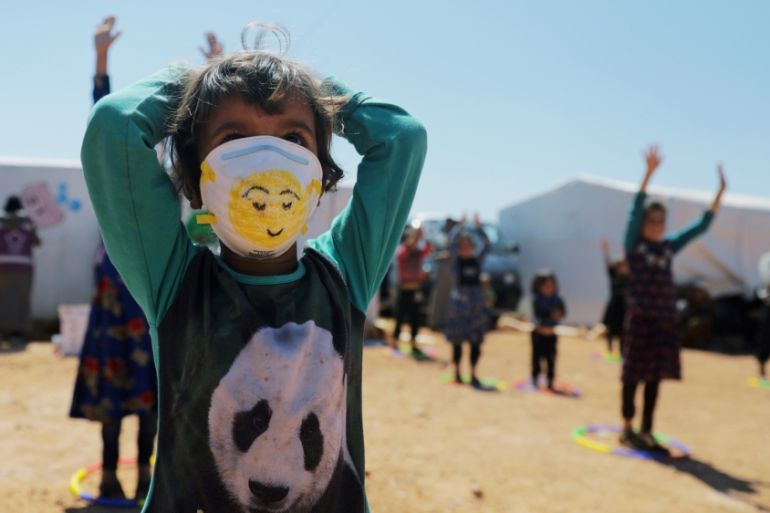‘Cascading crises’: UN calls for more funding for poorer nations
UN says response of wealthy countries ‘grossly inadequate’ as it increases appeal for funds to record $10.3bn.

Coronavirus support to poor countries has been “grossly inadequate” UN aid chief Mark Lowcock said on Thursday, as he asked wealthy countries for billions of dollars more to fight the coronavirus and deal with food insecurity.
The additional $3.6bn is the UN’s third appeal for funds since it launched the Global Humanitarian Response Plan in March, and brings the total appeal to a record $10.3bn.
Keep reading
list of 4 itemsUS blocks Palestinian push for full UN membership at Security Council
Why is Germany maintaining economic ties with China?
UN’s Libya envoy resigns citing no hope for political progress
The money is to help 63 countries, mainly in Africa and Latin America.
“The response so far of wealthy nations, who’ve rightly thrown out the fiscal and monetary rule books to protect their own people and economies, the response that they’ve made to the situations in other countries has been grossly inadequate and that’s dangerously shortsighted,” Lowcock, the UN undersecretary-general for humanitarian affairs, said as he warned of the risk of multiple famines this year and into 2021.
In addition to Somalia, South Sudan, Yemen and Nigeria, which have already been hit by food shortages, he expressed growing concern over the situation in Sudan, Zimbabwe and Haiti.
“The prospect of cascading crises more brutal and destructive than anything the virus alone can do must jolt us all out of our comfort zone,” he added.
Health system stress
As well as combating famines exacerbated by the pandemic-induced economic crisis, the additional funds are needed for medical equipment, information campaigns and to establish humanitarian air bridges in Africa, Asia and Latin America.
We welcome the @UN's appeal for USD10.3 billion to fight #COVID19 in the world's most vulnerable places. Our research shows tens of millions more children are at risk of increased hunger, violence, disease and death due to secondary impacts of the pandemic.
— World Vision NZ (@WorldVisionNZ) July 16, 2020
UN agencies estimate that the disruption to health systems caused by the pandemic could lead to the deaths of 6,000 children every day from preventable causes, while annual deaths from HIV, tuberculosis and malaria could double.
The first cases of coronavirus were confirmed in Idlib in Syria last week, raising concern the respiratory disease could spread in the crowded camps where hundreds of thousands of people forced from their homes in the country’s civil war have taken refuge.
The UN has raised only $1.7bn since the plan was first launched.
Aid concerns
Lowcock spoke of discussions in the US Congress, the European Union, and the UK where the Department for International Development is being merged with the Foreign Office. He said aid from Gulf countries was also long overdue.
“We do want to see these countries get back to play the role they had played in the previous two or three years,” he said, highlighting the “risk of significant reduction in UK assistance”.
|
|
China has recently promised to spend two billion dollars on poorer countries, and Lowcock said it would be good if “some significant proportion of those resources could be used directly to support” the UN plan.
According to a projection by the UN and the University of Oxford, 121 million more people could be affected by food insecurity by December if nothing is done.
Failure to act could also lead to instability or conflict in countries such as Lebanon, Senegal, Belize, Zambia, Zimbabwe and Burundi, according to the United Nations.
In poor countries, the human cost could be devastating if the virus is not brought under control. It could kill 1.67 million people in 30 low-income countries, according to UN projections.